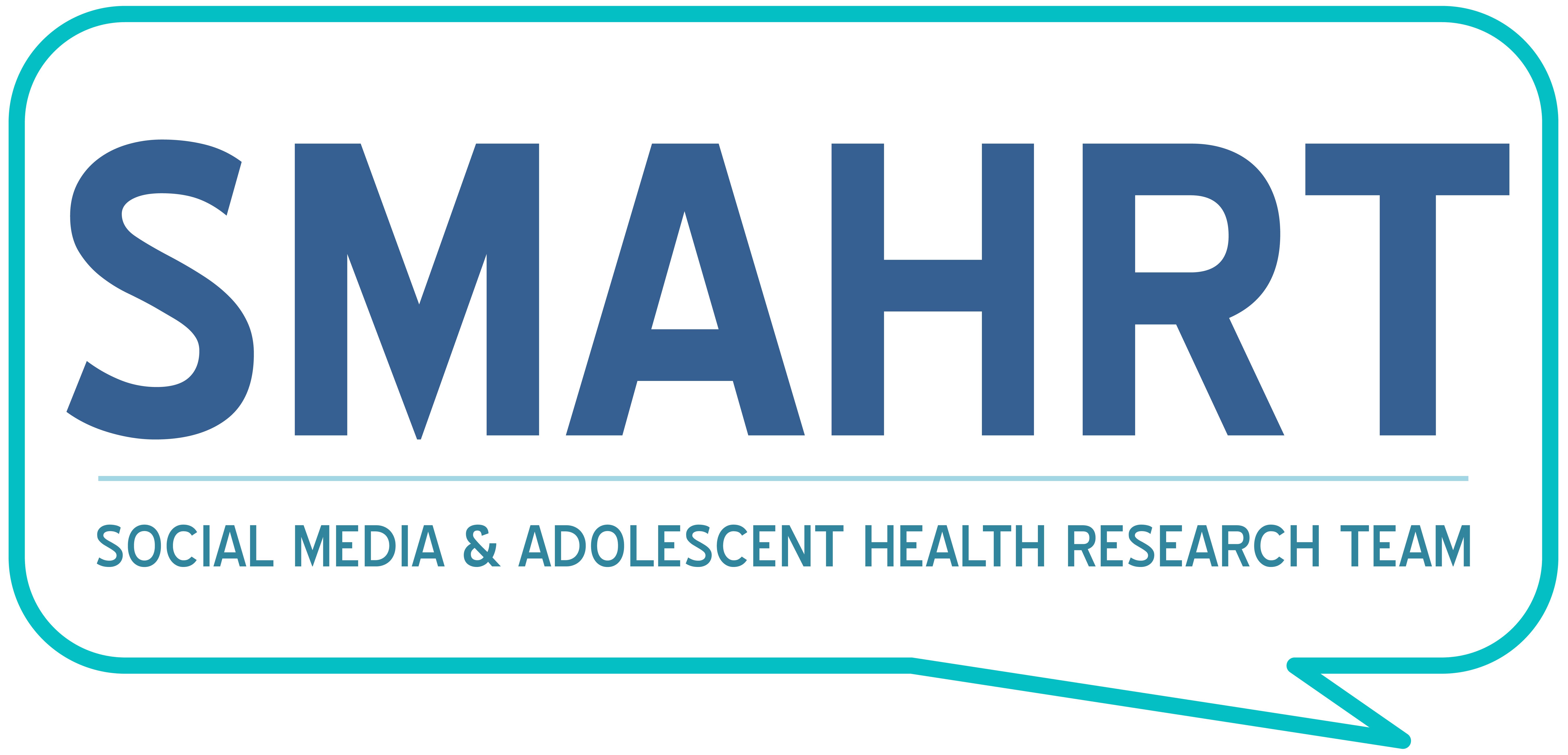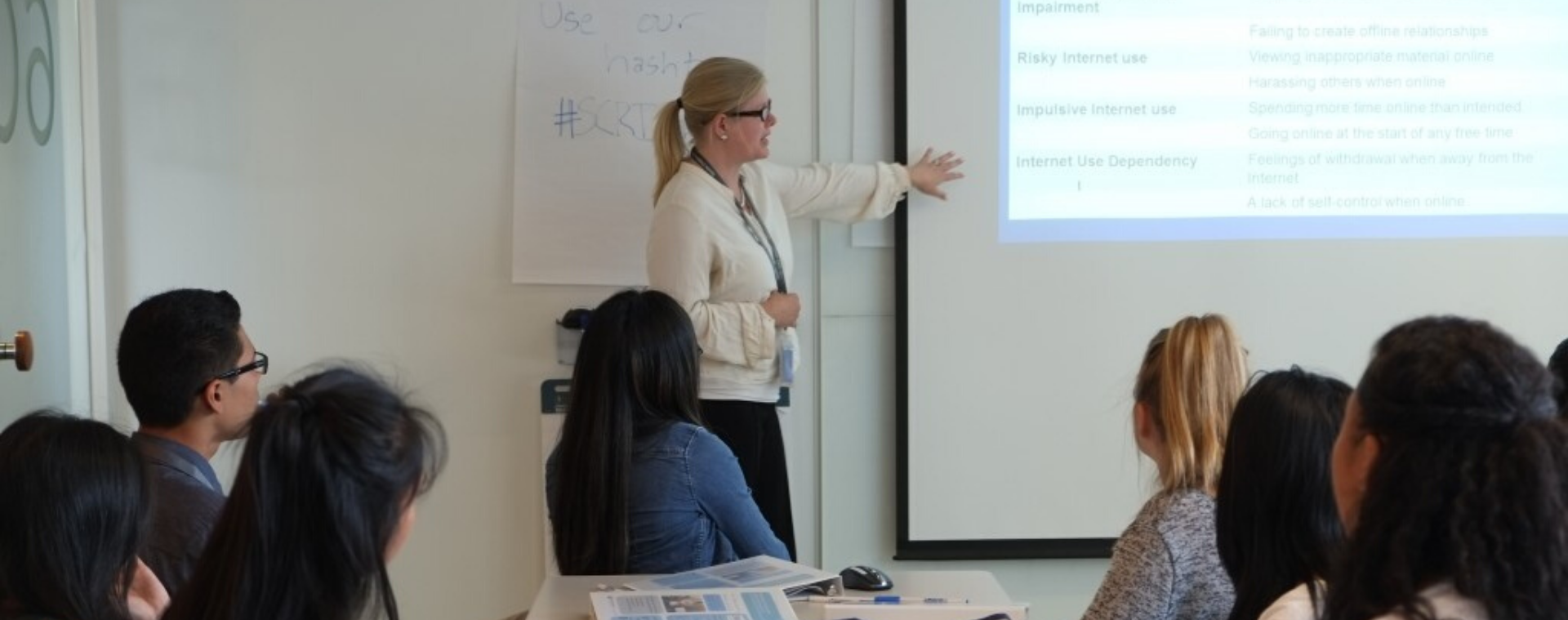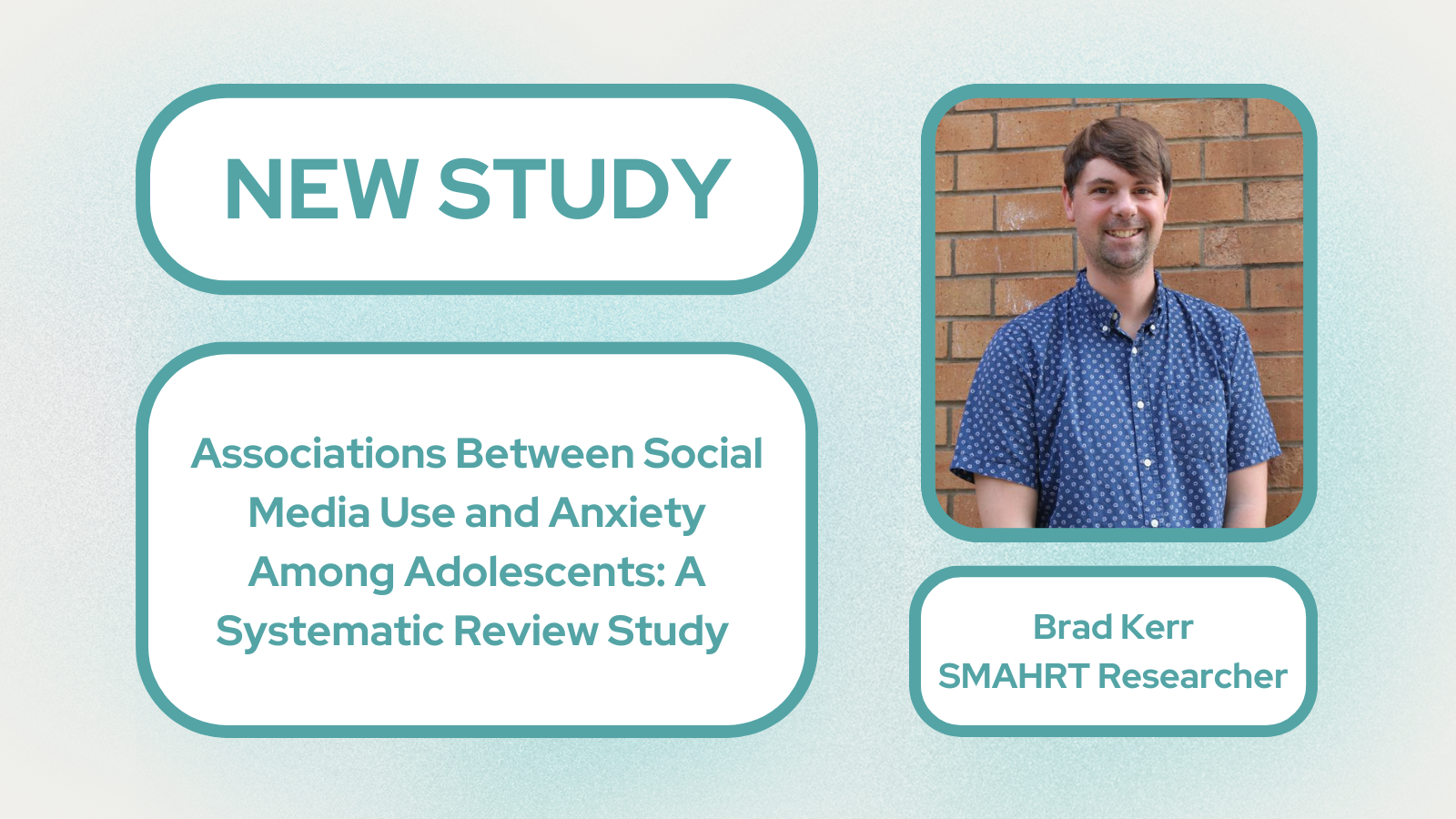Written By: Matt Gatland
Brad Kerr recently authored a study he led with other SMAHRTies, titled “Associations Between Social Media Use and Anxiety Among Adolescents: A Systematic Review Study”, which was published in October in the Journal of Adolescent Health. The review was conducted between January 2021 and August 2023, and encompassed 32 studies that tested associations between social media use and anxiety. Read Brad’s Q&A below about the importance of systematic reviews and findings from this new study.
What is a Systematic Review?
A systematic review is defined as a research methodology that integrates all relevant work and content published on a subject, synthesized into one comprehensive review (Moore, K. , 2019). The review aggregates different studies on a topic into a single piece of research.
Q: Why are systematic reviews important?
Brad Kerr: Systematic reviews are important for research, because there are a couple of limitations that can be present in any individual study. One has to do with the design of individual studies. That can be the participants you reach, and it can be features of the study that make it so it’s more difficult to generalize information from that individual study. Another limitation is the possibility of getting what’s called a false positive, which is when you do a statistical test and, occasionally, by chance, the finding suggests that there are statistically significant results when there’s not actually a meaningful relationship in real life. So if you look at a bunch of studies together, you can get a better sense of whether the findings are really meaningful or not.
Q: What were the main findings of this systematic review?
Brad Kerr: We looked at the types of measures that were used in studying relationships with social media and anxiety, and we found that there was a lot of research on problematic social media use and anxiety, and there was a lot on screen time and anxiety. The issue with problematic social media use is that it’s a risk-based measure, and the issue with screen time is that people are not very good at estimating their social media use, so it’s subject to accuracy concerns. So when it comes to accurate measures of interactions that people have with social media, particularly ones that are neutral or maybe even beneficial…we just don’t know that much about them and their association with anxiety. So for me, one of the takeaways is about what we still haven’t learned yet.
Q: Were there any specific patterns or trends in social media usage that were linked to higher levels of anxiety among adolescents?
Brad Kerr: I think there are a couple key points. One is that when it comes to problematic social media use, there have been a good number of studies on that, and they’ve tended to find positive associations with anxiety. So if you have problematic social media use, you’re more likely to have anxiety. Another was that there just wasn’t quite as much around neutrally or beneficially framed interactions with social media, and so that one was more about what we don’t know about social media, and understanding future directions for where we might learn about some of those things.


